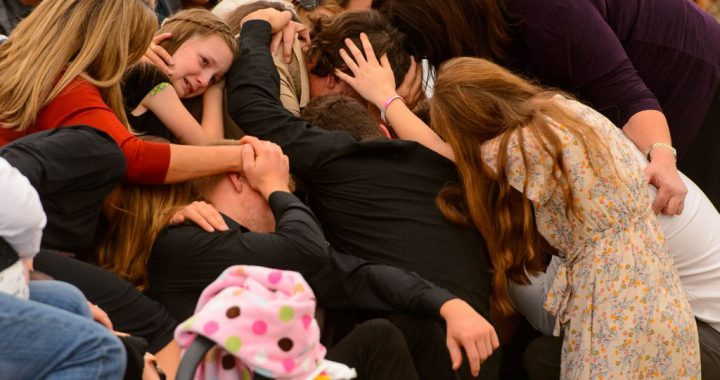New book explores a place that began as a polygamous outpost.
It’s not often you can read about Joseph Smith, founder of The Church of Jesus Christ of Latter-day Saints, and drug kingpin Joaquín “El Chapo” Guzmán in the same book.
But that’s the vast, sandy ground covered in “The Colony: Faith and Blood in a Promised Land,” a volume due out Tuesday about the 2019 massacre near La Mora, Mexico. Longtime Mormon history and crime author Sally Denton merges the topics to create nonfiction that’s part historical, part political science and part war story.
The killers — whoever they were, exactly — used automatic weapons and, Denton reports, a rocket-propelled grenade to kill three women and six children. I traveled to La Mora to report on the funerals for The Salt Lake Tribune. While I heard some of the details that the surviving children told their parents, Denton told me a lot of things I didn’t know about the bullets that flew through the desert and the horror seen by the kids.
The victims had citizenship in Mexico and the United States. Denton explains all the history that left northern Mexico with a Dutch oven stew of Mormonism.
There’s the Salt Lake City-based Church of Jesus Christ of Latter-day Saints, which officially abandoned polygamy in 1890 as a condition of Utah statehood and kicks out members found practicing it. Then, add in the fundamentalist Mormons who still let men marry multiple women and other types of independent Mormons in between.
Denton conducted scores of interviews and cited other reporters’ work. Despite that, she can offer only theories for the bloody ambush.
The first is that the target was one of the mothers slain that day: Rhonita Miller.
“She was the only one that they burned alive,” Denton told me in an interview earlier this month, “that they used a rocket launcher [on]; that they videotaped it.”
Miller was also from the town of Colonia LeBaron, the destination the three families were traveling to that day and a community that had complex ties to all of Mexico’s factions. While La Mora had what one family member described as a “cordial relationship” with Guzmán’s Sinaloa Cartel, Colonia LeBaron had activists opposing the drug traffickers.
The LeBarons — as residents are known, even if their surnames aren’t LeBaron — also had poor relations with their neighbors over land and water. Denton describes how Colonia LeBaron wanted the government to do something about the corruption and violence. Advocates for native Mexicans accused the LeBarons of ignoring environmental laws to grow more Brussels sprouts, tomatillos and watermelons.
If your knowledge of Mexico comes from sipping margaritas in Cancun, you may have forgotten the country is fundamentally different from the United States. Drug cartels operate as nations within Mexican borders. Politics in Mexico City on down to municipal governments are intertwined with opposition to — and cooperation with — the traffickers.
Denton spells out all the ways Colonia LeBaron’s conflicts could have birthed the massacre. She even floats the idea that someone in Colonia LeBaron could have worked with the cartels to perpetrate the massacre to settle old Mormon grievances.
“When it came down to it,” Denton told me, “the LeBarons don’t have a lot of friends down there.”
When I called David Langford this month to ask why he thought one of his wives, Dawna, and two of his sons, 11-year-old Trevor and 2-year-old Rogan, were gunned down, he didn’t believe anyone in Colonia LeBaron could have cooperated with the cartels.
“There’s no shred of evidence,” he said, “to support a theory like that.”
His theory is that it had to do with a lithium mine scheduled to begin production in 2024 about 75 miles south of La Mora.
Langford’s idea is a little hard to track, but the short version is that someone in the Mexican government perpetrated the killings to boost support for a better road leading to the mine. Denton doesn’t address that possibility in “The Colony.”
Langford said his surviving children are doing well. They now live near Colorado City, Ariz. He says about 15 to 20 other families moved out of La Mora, too.
At least 30 people have been arrested in connection with the assault, Langford and Denton both told me. No one has yet been convicted of murder.
The Salt Lake Tribune and FOX 13 are content-sharing partners.
